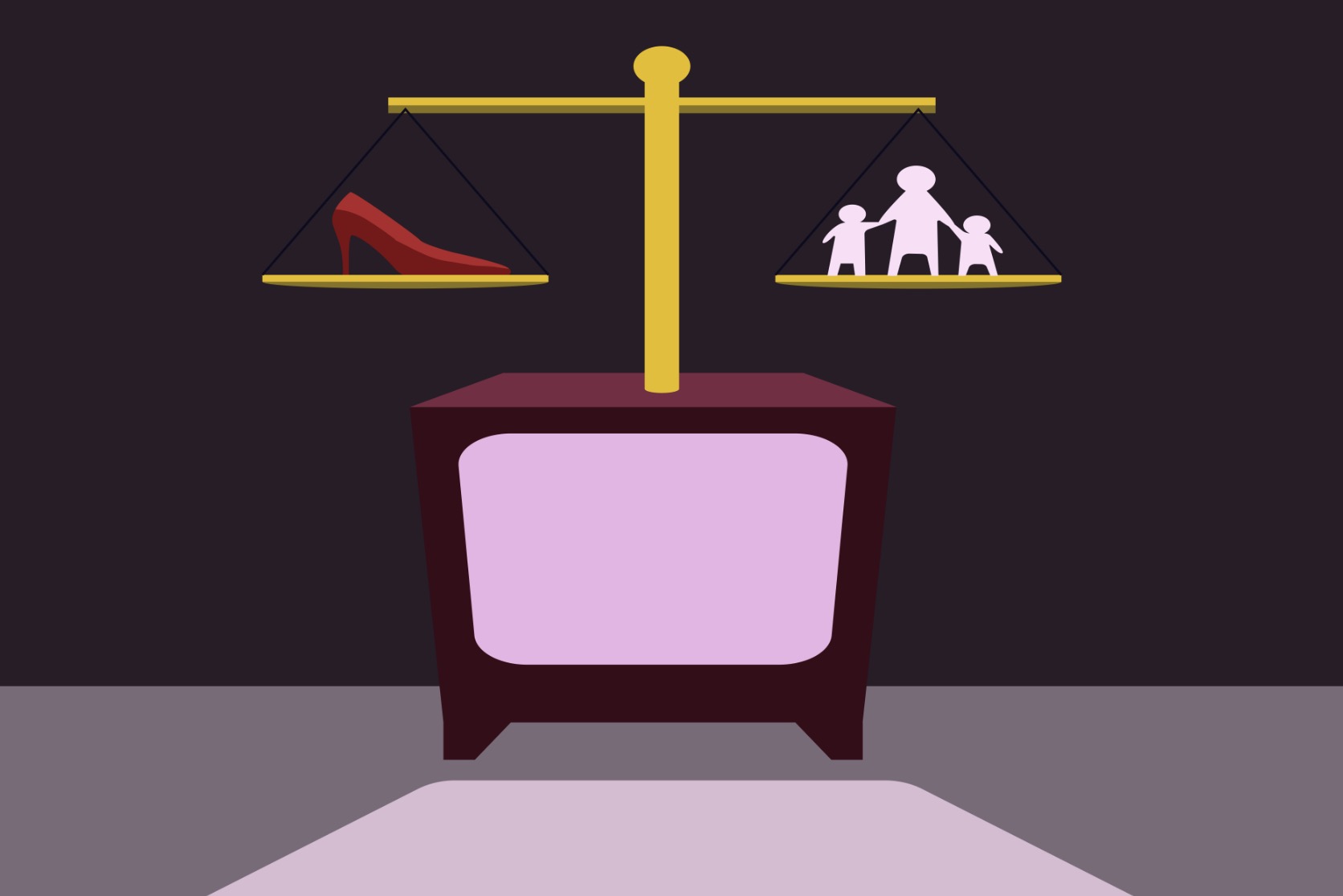While there have been many exceptional TV shows in the last decade, one that stands out in particular is “The Good Wife,” the story of Alicia Florrick, a politician wife turned lawyer. After her state’s attorney husband Peter Florrick cheats on her and, in the process, resigns from office and goes to jail, Alicia decides to find solace in what she once used to excel at: practicing law.
Her entry into the firm Stern, Lockhart and Gardner as a junior associate marks the beginning of a radical new stage in her life. Here are the four main components of the show that make it such gripping television.
1. A psychologically complex protagonist
Take something as cliché as a sleazy politician being caught in a public cheating scandal. For many people, it’s a commonplace event that would neither shock nor enrage them. In fact, in conventional narratives, little consideration is usually given to the wife who’s had to endure such humiliation. Yes, you might pity her, judge her — mock her, maybe — but ultimately, she is little more than collateral in the scheme of things.
Even more scorching is the stigma attached to the wife who stays with her cheating husband and who, for that same reason, is dismissed as either being self-sacrificing, spineless or just plain stupid. What “The Good Wife” sets out to do is to explore the ins and outs of this stereotype by choosing to hone in on the narrative of the archetypal “wife” and assign newfound depth and complexity to a character that is either ignored entirely or sizably misrepresented.
Alicia proves she is much more than the stereotypes she has inherited. She’s polite but also assertive. She’s a conscientious citizen, a diligent lawyer and a caring mother. Yet it is her attempt to hold it all together — to embody the virtuous persona she has imposed on herself at the expense of her own needs and wants — that creates the riveting internal conflict that drives the show.
With a detached reticence that is almost off-putting, Alicia constantly makes viewers question just how they should make sense of someone in her position. Other characters outwardly question her choices and actions — Why does she stay with Peter? Is she doing it for ulterior motives? Will she ever forgive him? What is she really feeling? — directing at her the same questions viewers desperately want answered.
In this way, “The Good Wife” introduces a subversive character that defies popular and sexist preconceptions of the wife who is subordinate to her unfaithful husband. Viewers observe how choosing to stand by Peter during his infidelity is neither an act of weakness or naivety.
In fact, even when the scandal Alicia was dragged into constantly works to undermine her (personally and professionally), it never succeeds in defining her. Instead, the audience sees her throw herself into the law and work tirelessly to reassert her value as something far removed from her role as “wife.”
While her inscrutable nature keeps viewers at a distance, the show depicts her trying to reconcile her duties, her emotions and her own self-image, in an effort to make something of herself outside of the confining labels given to her by others.
2. Thought-provoking legal cases
In “The Good Wife,” the legal cases are not an afterthought; they are its beating heart. You won’t need to have attended law school to follow the cases, nor will you feel bored if you do happen to be an expert on legal matters.
Each case (and thus each episode) explores some conflict or ambiguity within the law, whether it’s an existing moral dilemma, such as the death penalty, or an insight into the controversial role of the jury in delivering verdicts. A host of supporting characters act as judges, political advisers, infamous murderers and competing lawyers in the process, humanizing legal conundrums and peppering viewers with cathartic emotions, strong personalities and controversial views.
The questions the show poses regarding the ethics of the law are plentiful and point to the abstruseness at the very foundation of the legal system. What role does truth play in justice? How do we quantify what is right and what is wrong? Is the law always fair?
If you didn’t already suspect it, “The Good Wife” will, without a doubt, leave you thinking that the law is far from a panacea. Instead, the show succeeds in demonstrating how the system is as much the “rules of the game” as it is the individuals tasked with upholding it, who operate at the mercy of their own biases.
The frustrating moral ambiguity that accompanies each episode is one of the most effective aspects of the show. It challenges you at every stop and forces you to constantly re-examine your pre-established loyalty to different characters and ideas, leaving you with little conviction as to what is truly right and wrong.
In the end, “The Good Wife” gives you only one choice, which is to abandon black-and-white binaries altogether and observe the law for what it is: a competitive game where the objective truth remains out of your reach 90 percent of the time. The show’s takeaway is simple: There are no saints and no sinners, only people doing their job — whatever it is that job requires of them.
3. Political intrigue
If you’re torn between watching a political drama or legal drama, “The Good Wife” offers you the best of both. While judicial matters are never completely removed from local politics — in fact, many times they’re inextricably bound together — the show is able to weave both narratives together in a particularly compelling way.
Each episode is framed around a new legal case, but the clandestine political conspiracies taking place below the surface (Peter’s resurgence into politics, as well as the political ambitions of secondary characters) succeed in keeping things fresh, exciting and endlessly open.
Alicia’s position in and of itself is also inherently politicized, as many characters use her marriage to Peter and his position as former state attorney as leverage either in her favor or against her. In that way, just as Alicia is navigating her way through the game of law, she is also playing the double game of politics, using her role as a political pawn as a means to advance her own interests.
The show’s fast-paced Chicago energy means there is never a lull in the drama, only continuous plotting, convoluted scheming and differing degrees of backstabbing. Political schemes rise as fast as they fall, and alliances change from day to day, making the Windy City give Washington D.C. a run for its money. In the end, “The Good Wife” couldn’t be clearer: The city may sleep but lawyers and politicians never do.
4. Subtle romantic subtext
One of the most irksome aspects of many TV shows today is the hyper-sexualization of plotlines and characters for the sake of attracting audiences. That’s why one of the feats of “The Good Wife” is the palpable yet subtle sexual undertones underneath the surface.
Although the show revolves around other less romantic considerations — one of them being the future of the Florrick marriage — the cautious but undeniably lustful trajectory of Alicia and Will’s relationship is handled superbly. The audience feels the desire before they even explicitly see it, and that is as much testament to the actors’ chemistry as it is the development of their characters through the script.
“The Good Wife” could have easily descended into cheap and gratifying self-indulgence, but true to the psychology of its protagonist and her tendency for self-imposed restraint, the series creates the conditions for an underlying sexual tension to toy with the imagination of viewers.
The romantic subtext also feeds into Alicia’s internal conflict, as she’s forced to balance out her unfulfilled desire for Will with the duty she feels to her husband and family, creating a love triangle that is both seductive and sophisticated.
















